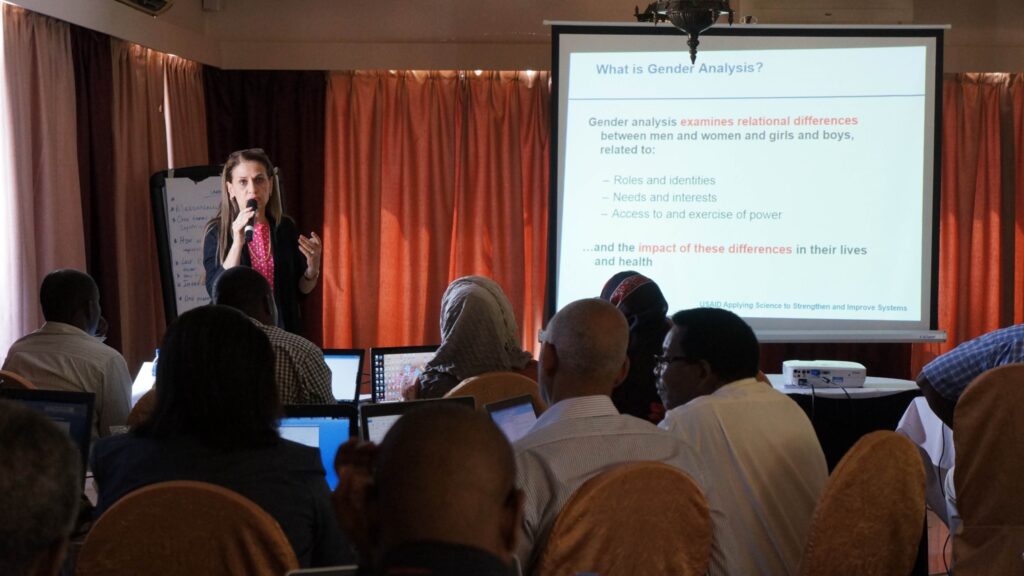Celebrating International Women’s Day
By Taroub Faramand on March 6, 2015
March 8th is International Women’s Day. This commemoration serves as an important opportunity to think critically about the changes that have come about during the past year to improve the lives of girls and women. It also serves as an opportunity to recognize where gaps and inequalities are still pervasive and prevent women and girls from realizing their full potential and to advocate for further changes to increase equal opportunities for women and girls.
Reflecting on our past year at WI-HER and on the USAID ASSIST Project, it gives me great pride to think about the strides we’ve made in improving the health and lives of women and girls and their families and communities.
There are many examples in which the USAID ASSIST Project works specifically to improve women’s health, such as our family planning and maternal health work. In addition to enhancing direct services for women and girls, our approach also involves working with men and boys, as a means of improving women’s health and their own health. Healthy husbands, sons, and brothers also benefit women and girls substantially. Through the USAID ASSIST Project, we systematically identify and analyze gender-related gaps in outcomes and norms that influence risk factors, access to care, care-seeking behavior and equality of treatment, and address those gaps to generate shifts in thinking at the individual, household, and community levels.
In Kenya, ASSIST is working with implementing partners to decrease child marriage, to prevent FGM/C and to keep girls in school. In India, ASSIST is working to empower ASHA community health workers. In Uganda, we’re supporting gender integration in the Partnership for an HIV-Free Survival, and gender integration has contributed to retention rates of mother-baby pairs in treatment reaching 100%. In Nicaragua, ASSIST recently collaborated on a Spanish-language gender, gender-based violence and HIV training module for medical and nursing school professors. In Ukraine, ASSIST worked to improve health outcomes for mothers and babies by decreasing alcohol and tobacco use by pregnant women. In the last year, our ASSIST gender team provided gender integration trainings in Uganda, Tanzania, Ukraine, and Malawi, and we look forward to training staff in Kenya and Tananzia in the months to come.
WI-HER staff have also conducted other activities to advance the status of women and girls. For example, we conducted human resource trainings on gender, sexual harassment, and human trafficking to protect the lives of female and male staff and project beneficiaries. We also supported a women’s association in Uganda by providing a mill grinder to enhance the health and economic security of women and their families. In addition, we are working with the CORE Group to build the capacity of nutrition and food security practitioners to design, implement, and evaluate gender-sensitive social and behavior change (SBC) programming in order to improve nutritional outcomes for pregnant and lactating mothers and children under two.
WI-HER was founded in honor of the strong and devoted women in my life and their strength and devotion continues to inspire me. I am proud of what we have been able to accomplish in the past year through the ASSIST and other projects and I look forward to the coming year as we continue our deep commitment to improve health outcomes for women, men, boys, and girls.
